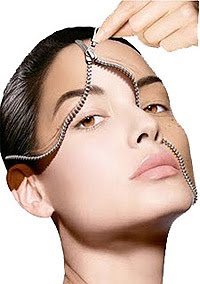The Skin Lightening website brings you another skin-care article...
Just when you think you have your skin all under control - it changes on you. For example, the oiliness of your skin can change from day to day, depending on the sun, the wind, the time of year, your hormones and the weather. However, whether your skin is oily all year round or just in the summertime, it is not welcome. Oily skin appears excessively thick and dull, usually with coarse pores and a sprinkling of pimples. This is because the oil glands of the skin are overactive and oil builds up in the skin, making it prone to the formation of blackheads.
Just when you think you have your skin all under control - it changes on you. For example, the oiliness of your skin can change from day to day, depending on the sun, the wind, the time of year, your hormones and the weather. However, whether your skin is oily all year round or just in the summertime, it is not welcome. Oily skin appears excessively thick and dull, usually with coarse pores and a sprinkling of pimples. This is because the oil glands of the skin are overactive and oil builds up in the skin, making it prone to the formation of blackheads.
Genetic causes are at play in the case of oily skin as well as diet, hormones, cosmetics, pregnancy (in the case of women), contraceptives, and environmental conditions like a hot and humid climate. Since high levels of hormones, especially testosterone, make the oil glands over active, oily skin is more frequently seen in teenagers. The same reason accounts for oily skin conditions in women who are pregnant or going through the menopause.
Regular cleansing with hot water and soap is needed to prevent oil build up and clogging of pores. However, take care not to use harsh soaps and other products that over-dry your skin. If you use dehydrating products on the skin, the upper layer goes dry and shrinks, resulting in obstruction in the flow of oil through the pores. The result is the clogging of the pores.
Wash the skin with hot water (but not burning hot) rather than tepid water. Hot water dissolves the oil more readily. Do not use cleansing creams – opt for an antibacterial cleansing lotion or a mild, medicated soap. After cleansing, treat the skin with a natural oil-free moisturizer.
 If your skin is too oily and you are under 30, you should do four cleansings daily and should use little or no moisturizer. Use your fingertips to massage your face well during the cleansing.
If your skin is too oily and you are under 30, you should do four cleansings daily and should use little or no moisturizer. Use your fingertips to massage your face well during the cleansing. A clay or mud mask can help bring the oily condition of the skin to normal. For sensitive skin, white or rose-coloured clays are better as a mask. Women, before wearing make up, may use an antiseptic day cream that reduces the activity of the oil glands.
If you have oily skin, a diet rich in protein but lacking sugar, fluids, and salt is recommended. Vegetables and fruits are necessary; especially important being foods that are rich in vitamin B2. These include whole grains, beans, nuts and royal jelly. Use minimum oil in your diet and abstain from alcohol, soft drinks, sugary drinks, chocolate and other junk food. Talk to you doctor or dermatologist for more help with oily skin problems.












